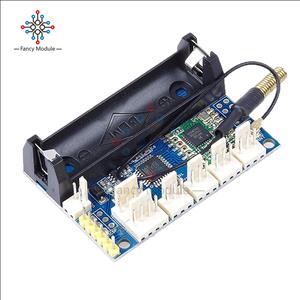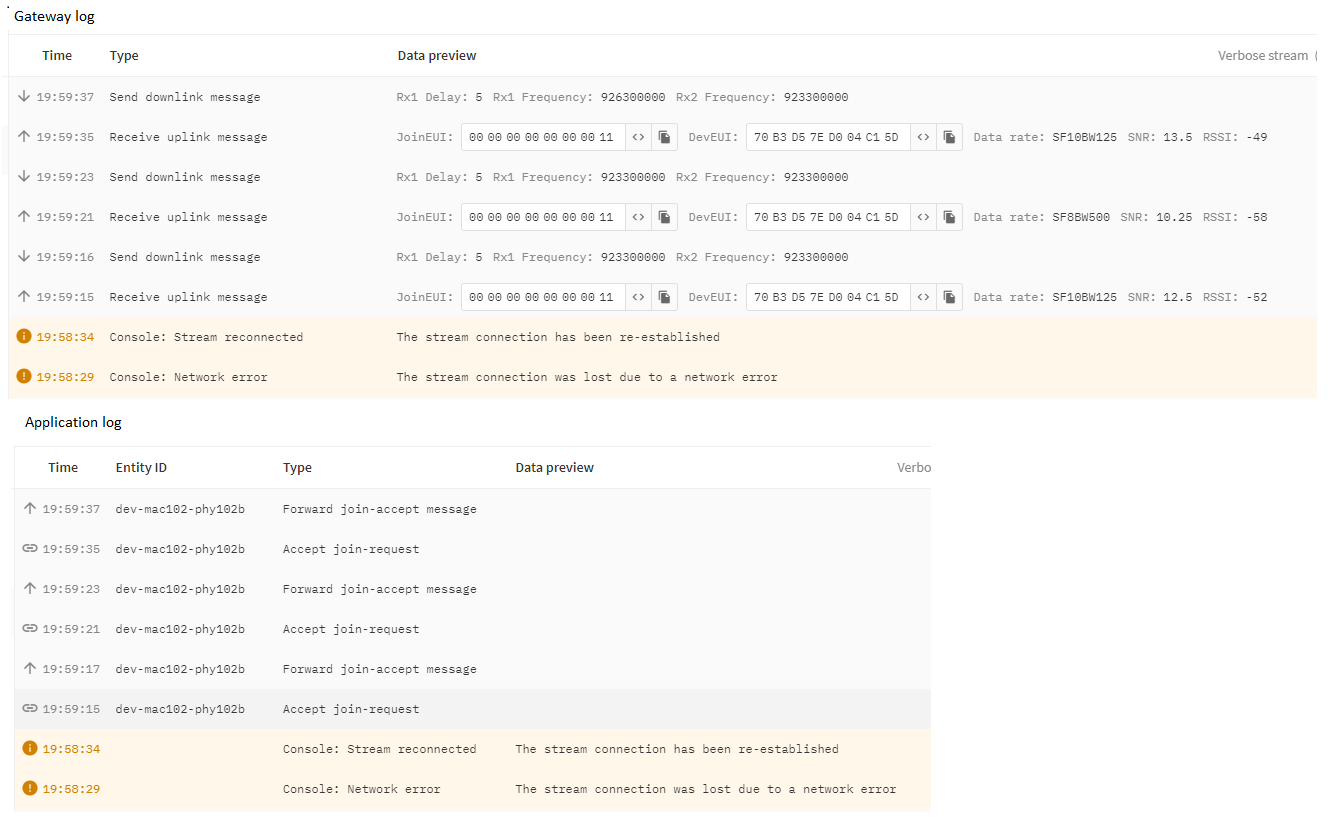Environment:
- TTN Indoor Gateway
- Arduino IDE
- LMIC Library v1.5 (also tried v1.4)
- LoRa Radio Node RF96 915Mhz (North America) with AT328 installed
- Hardware configurations:
DIO0 → D2
DIO1 → 5
I have LoRa Radio Node which has installed Hope RF96 module(picture attached), I read its datasheet and also I found some very useful information to work with this module like mobilefish on Youtube and some web sites, I followed this example First steps with LoRa Radio Node to setup my module but when I downloaded the code from github, some important files were missing. I thought to use LMIC library as this is widely used. after completing the setup, when my LoRa node is running I get the message on Serial Monitor:
EV_JOINING then a long pause and then
EV_JOIN_FAILED and then this message keep repeating itself.
I tried to find the solution on TTN forum and checked/updated following:
Pin configuration
// Pin mapping
const lmic_pinmap lmic_pins = {
.nss = 10,
.rxtx = LMIC_UNUSED_PIN,
.rst = 9,
.dio = {2, 5, LMIC_UNUSED_PIN}, // DIO01 -> D5
};
- I came to know in config.h I have to change frequency to 915Mhz, I did that,
- I also read in some thread that module worked with separate USB power supply, so tried it.
- Distance from Gateway, I tried it many way like Gateway in same room, or 20 feet away, upper floor etc.
My Setup on TTN is all good, I took care of LSB, MSB while copying AppEUI, DeviceEUI and AppKey
When we create an Application on TTN and add a device manually there are some fields:
LoRaWAN version: I set to MAC V1.0.2 as its most commonly used, but i could not find anything related to this in RF96 datasheet or TTN help. When I read module’s register value 0x42 (for version) I get 0x12. I tried many other LoRaWAN versions with Regional parameters.
Regional Parameters version: in this field I set PHY V1.0.2 REV B again I was not able to find any documentation about it. (Last night i was able to find in the datasheet register for PHY 0x11, still I need to read the value)
After all above updates I still get same messages on Serial Monitor except few times I received the message, on TTN console I can see that some messages received activity took place but no payload attached to it. (but again except those few messages were received correct and I was to see payload attached to them)
Whenever message is successfully delivered I can see following line on Serial Monitor,
EV_TXCOMPLETE (includes waiting for RX windows)
I want to know what else I should consider?


